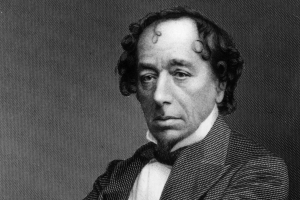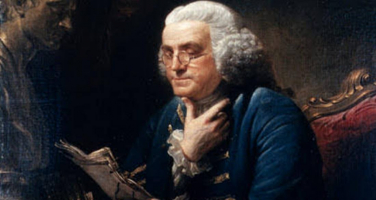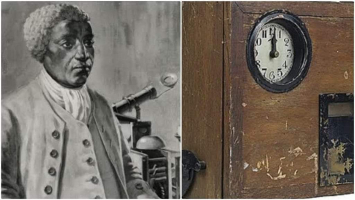Top 7 Interesting Facts about Benjamin Netanyahu
You might not know much about Benjamin Netanyahu if you are not interested in world politics. As the former Israeli prime minister and a vociferous advocate ... read more...for Israeli rights, Benjamin Netanyahu has long been at war with the United States, the United Nations, and Israel's Middle Eastern neighbors because of his unique political ideas and loud personality. So what do we know about the man who has governed Israel for more than ten years? Here are 7 interesting facts about Benjamin Netanyahu, a contentious political figure that we may learn from.
-
Netanyahu was raised in Jerusalem after being born in the Israeli seaside city of Tel Aviv on October 21, 1949. His mother, Zila Segal, came from a time when the Mutasarrifate of Jerusalem was governed by the Ottoman Empire. His father, Benzion, is a well-known Jewish historian and a follower of the late Zeev Jabotinsky, a hardline Zionist idealist. Benjamin Netanyahu is affectionately referred to as "Bibi" by his family and friends. He also goes by the traditional Hebrew name of Benjamin Netanyahu. His last name, Netanyahu, in the same language means "God has bestowed." This is one of the interesting facts about Benjamin Netanyahu.
Bibi was accepted as a young boy into the Henrietta Szold Elementary School in Jerusalem. The Bibi family resided in Cheltenham Township, Pennsylvania, from the late 1950s until the early 1960s. During his tenure in America, Netanyahu changed his name to Benjamin Ben Nitai. Later, when questioned about the reasoning for this choice, Netanyahu responded that it was made to make it simpler for Americans to say his name.
Netanyahu, who goes by the childhood moniker Bibi, attended high school in the United States, where his father held a position as a researcher and university lecturer. He is the current generation of Israeli politicians with the best command of the English language. Netanyahu also holds a master's degree in business management from the Massachusetts Institute of Technology.
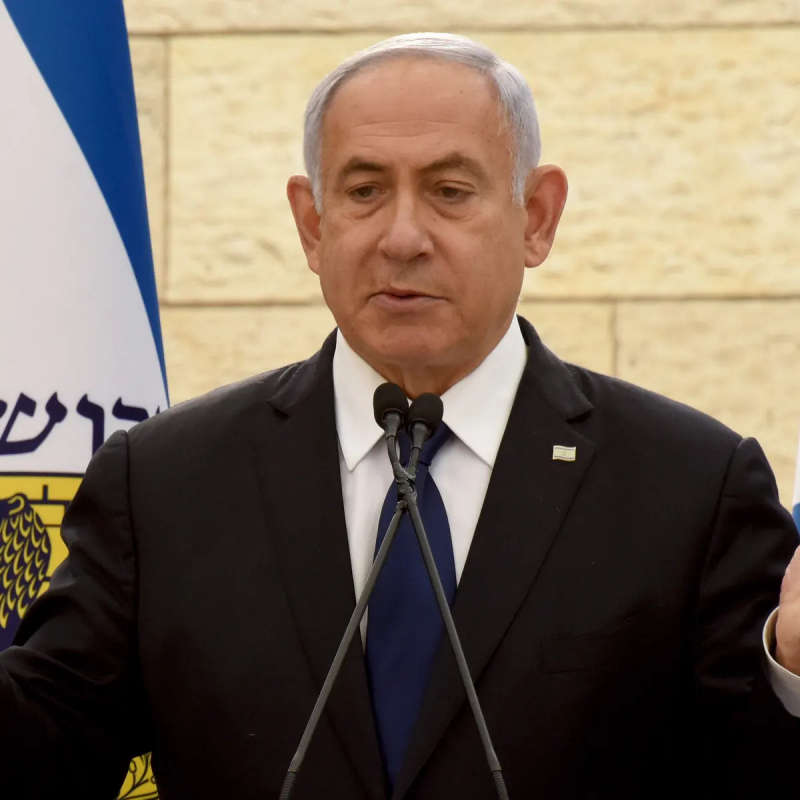
theguardian.com 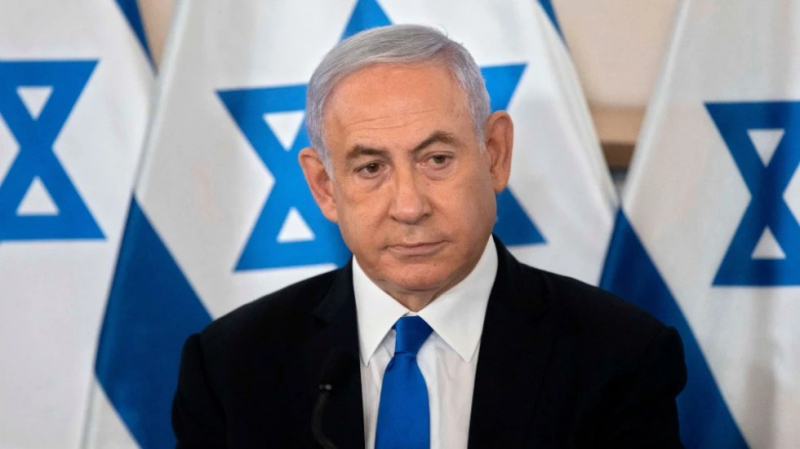
convertio.co -
When he was 18 years old, Netanyahu went to Israel to complete his enlistment in the Israel Defense Forces. One of the interesting facts about Benjamin Netanyahu is that he later joined the Sayeret Matkal, Israel's top special forces organization, and took part in the rescue of passengers from a hijacked plane at Tel Aviv airport in 1972. He worked as a captain for Sayeret Matkal, an elite commando unit, for five years.
In 1973, after leaving Massachusetts to fight for his country, he participated in the Yom Kippur War. The Entebbe attack was led by his brother Jonathan in 1976. Officially known as Operation Entebbe, the raid took place in Uganda on July 4, 1976, as part of a counterterrorism rescue operation. Although the effort was successful in saving the hostages' lives, Netanyahu's brother passed away in the raid. Ben formed an organization to support anti-terrorist talks after this. Following the Yom Kippur War, he was let go from the IDF after six years of service, during which he rose to the rank of captain.
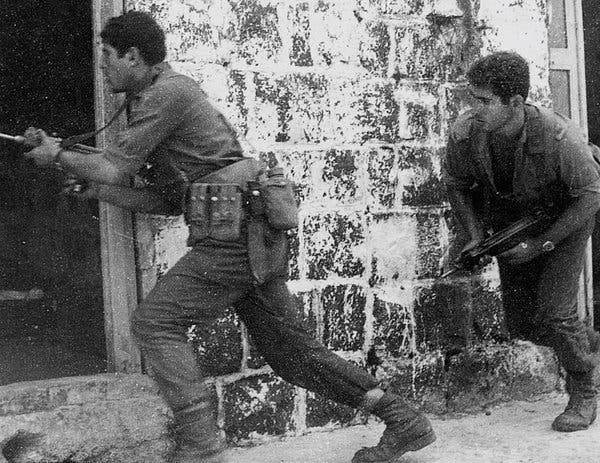
Photo: Netanyahu (right) during a training session as a member of the Sayeret Matkal commando unit of the Israeli Army - nld.com.vn 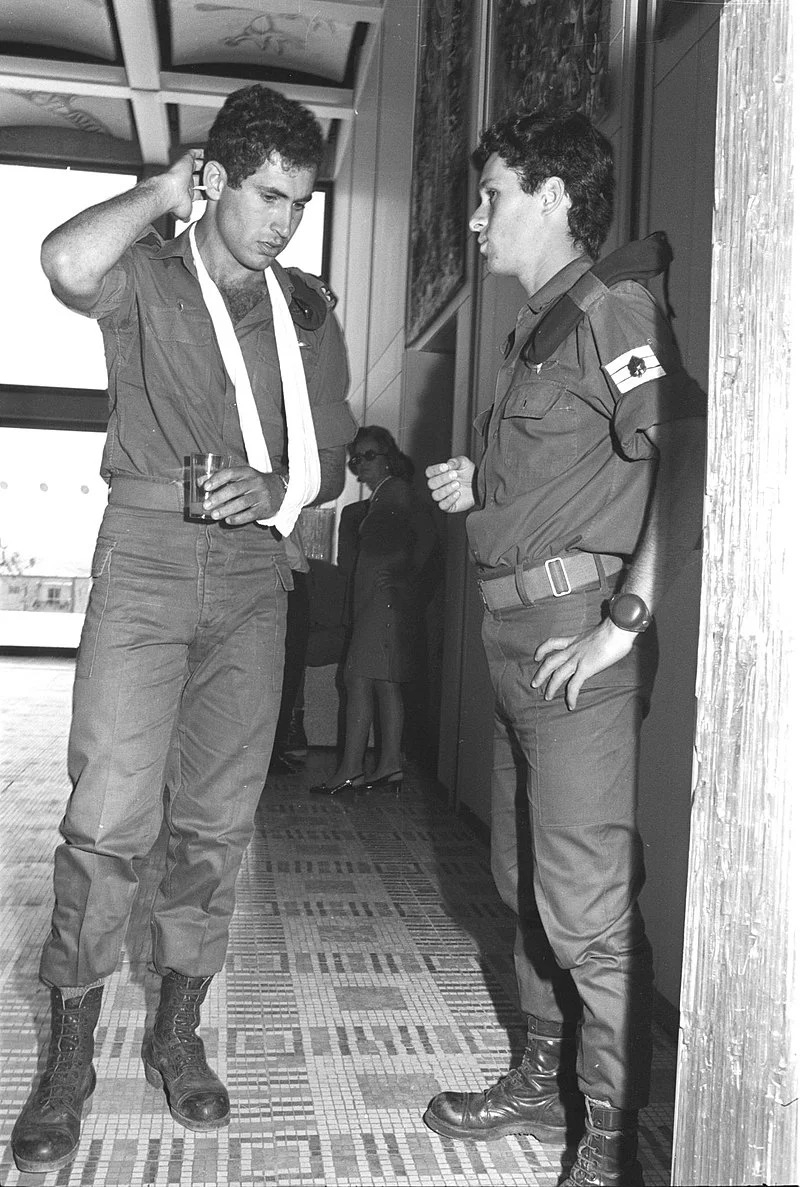
Photo: Israeli PM Benjamin Netanyahu (left) pictured here during his military service, 1972 - reddit.com -
Netanyahu was recruited by the Boston Consulting Group after receiving his MIT degree. He spent two years there, working with Mitt Romney. At the Boston Consulting Group, where both had been hired as business advisors, on the 16th floor in 1976, the lives of Mitt Romney and Benjamin Netanyahu briefly but irrevocably intertwined. They assessed one other at the firm's weekly brainstorming meetings, taking in the same thoroughly analytical worldview at the most formative stage of their careers. They became close and are still highly complimentary of one another today. Romney has remarked of Netanyahu, "We share shared experiences and have a worldview which is similar."
Netanyahu met Henry Jackson, George H.W. Bush, and Rabbi Menachem M. Schneerson—the man he regarded as the most influential person of our time—while working at the anti-terrorist institute he created.
In the 1980s, while residing in New York City, Netanyahu got to know Fred Trump, a well-known real estate mogul and the father of Donald Trump, the future president. Despite Netanyahu and his friend's kid not having the same degree of regard for one another, the two remained friends for many years.
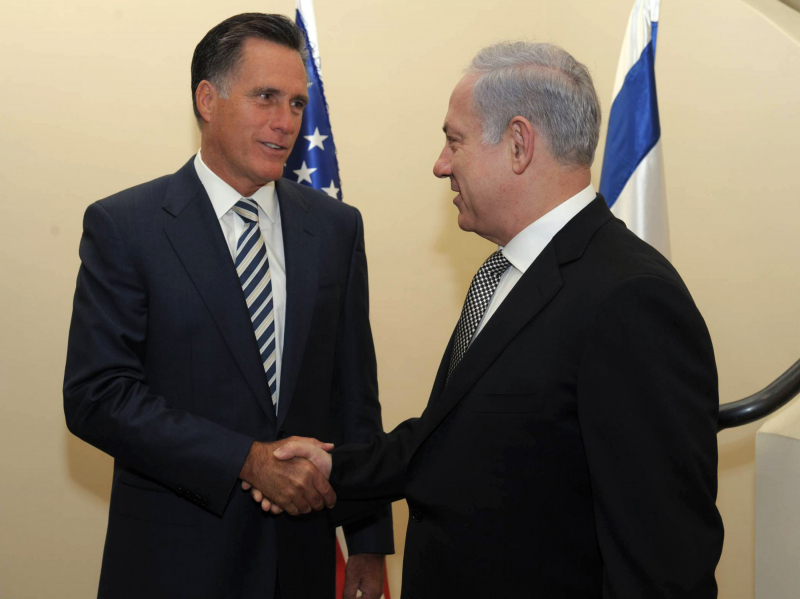
Photo: Mitt Romney and Benjamin Netanyahu - npr.org 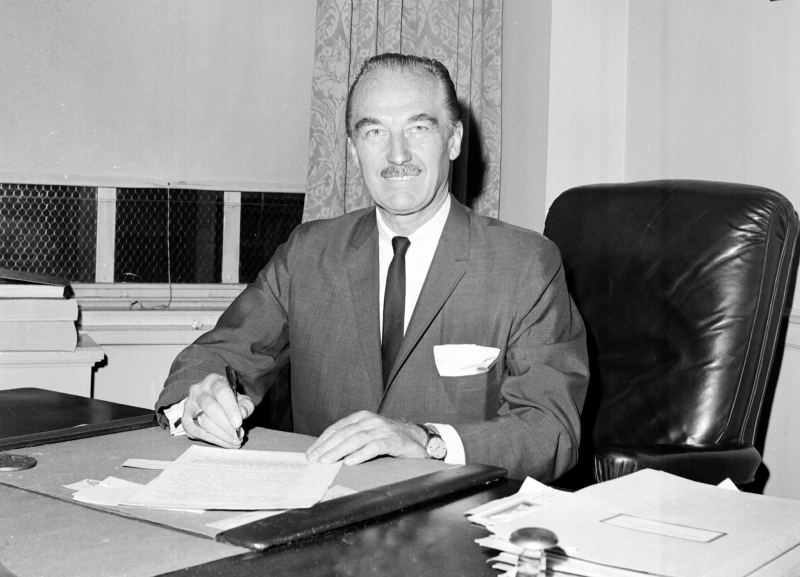
Photo: Fred Trump - nytimes.com -
Netanyahu joined Israel's diplomatic mission in the US in 1982, working for two years as Deputy Chief of Mission under Ambassador Moshe Arens. He also participated in the inaugural delegation to the US-Israel strategic cooperation discussions. Netanyahu got deeply involved in global counterterrorism initiatives, which aided him at the beginning of his political career.
He was the Israeli ambassador to the UN from 1982 to 1984 after serving in the Israeli embassy in Washington, D.C. (1984-88). In his capacity as U.N. ambassador, Benjamin Netanyahu spearheaded the initiative that led to the establishment of the Nazi War Crimes Archives in 1987. He successfully oversaw a drive to declassify U.N. records on Nazi war crimes when he was a member of the organization. He was a crucial player in attempts to improve Israel's image and increase understanding of the country's security concerns among the American public and political class. He was a persuasive debater, articulate speaker, and media-oriented diplomat.
Following his return to Israel in 1988, Netanyahu was chosen by the right-wing Likud party to serve in the Knesset, the Israeli parliament. Netanyahu advanced swiftly through the ranks to become Israel's, Deputy Foreign Minister under Moshe Arens and later David Levy. He was chosen as the Likud party's chairman and prime ministerial candidate five years later.
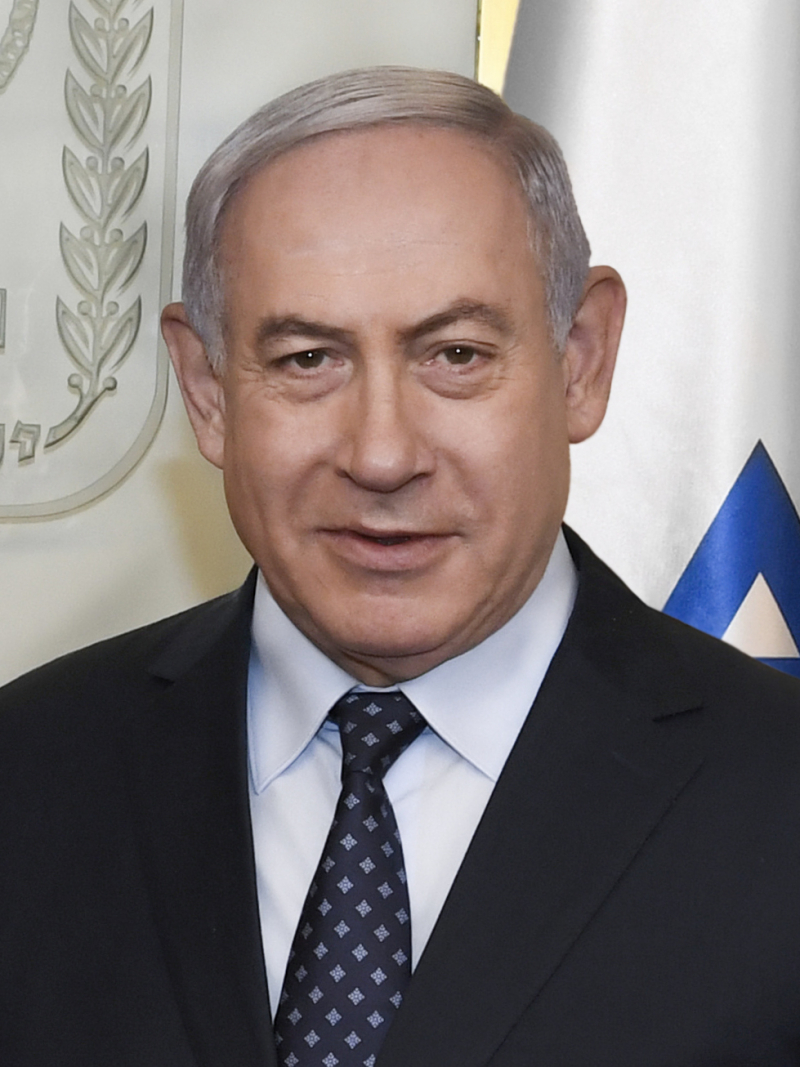
en.wikipedia.org 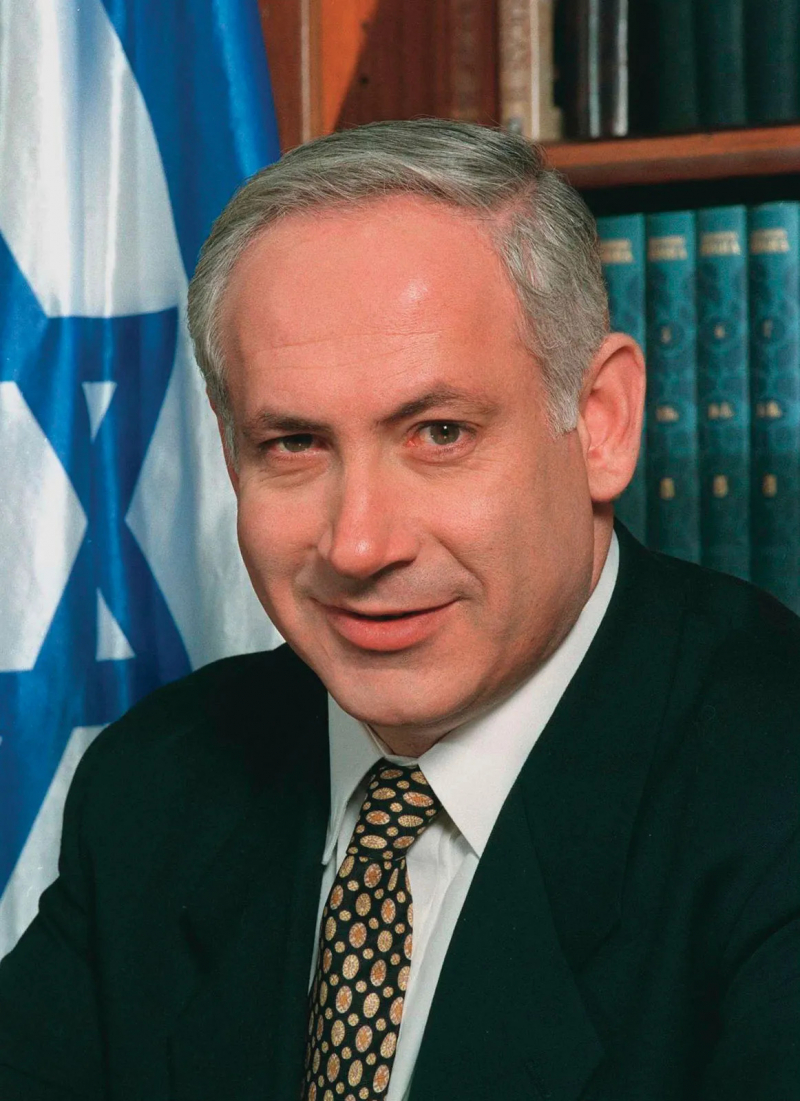
britannica.com -
One of the interesting facts about Benjamin Netanyahu is that he has served as Israel's prime minister for the longest time while also being the youngest is what makes him most famous. Shimon Peres, the incumbent Labor candidate, lost to him by a 1% vote margin in 1996 and went on to become Israel's prime minister. Age 46 applied to him. Until 1999, Netanyahu was in office as prime minister. He signed the Wye and Hebron Accords throughout his reign, which helped the Palestinians and Israelis get closer to peace. In addition, he increased government privatization, loosened monetary rules, and decreased deficits.
He served as prime minister at a period of political and social upheaval. The decision by Netanyahu to reactivate an old tunnel led to deadly clashes with the Palestinians and strained already tense relations between Israel and Syria.
In spite of his opposition to Israeli forces leaving occupied territory in exchange for peace, Netanyahu, who served as prime minister from 1996 to 1999, ordered the Israeli military to leave a portion of the West Bank town of Hebron in 1997 as part of an interim peace agreement with the Palestinians. But after that, Netanyahu made one of his least popular political choices. He reneged on a portion of the Israel-Palestine land accord his government had formed and publicly announced his intention to build a Jewish colony on Palestinian-claimed territory. His tenure was ended in 1999 by an early election brought on by a subsequent agreement with the Palestinians that was arranged by the United States.
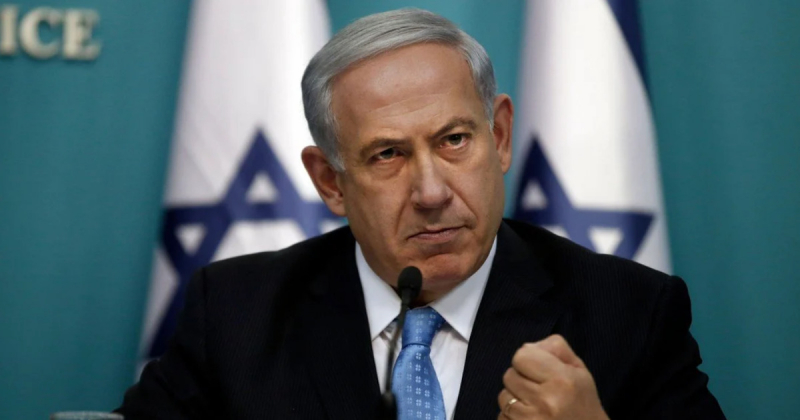
thanhnien.vn 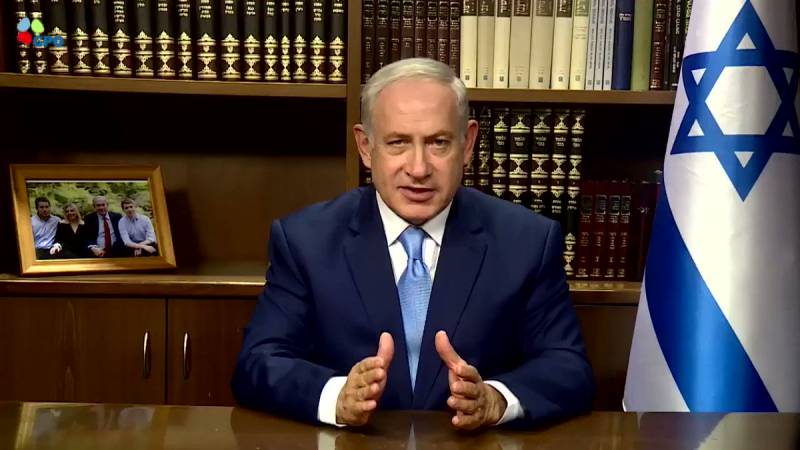
twitter.com -
Netanyahu set up peace discussions with Yasser Arafat after the bombings and demonstrations that marked the end of his first term. A number of significant intermediate problems mandated by the 1993 Oslo Peace Accords were resolved by Netanyahu and Palestinian Authority President Yasir Arafat. In exchange for Israeli concessions of an additional 13% of the West Bank, the Palestinians agreed to delete language from their founding charter that called for the destruction of the Jewish state. The left accused Netanyahu of deliberately obstructing the peace process, while the right accused him of betraying those who had voted for him in the hope that he would never cede Israeli land. Netanyahu came under assault from both sides of the political spectrum.
Even though Netanyahu postponed the second Israeli pullout, which was supposed to happen on December 18th, he had already damaged his relationship with his right wing constituency. The cabinet of Netanyahu was not pleased. Right-wingers and the ruling coalition opposed the arrangement. The peace talks were suspended in mid-December of 1998 when Parliament chose to dismiss Netanyahu's administration and schedule elections in the spring. After losing the 1999 election, Netanyahu gave up the leadership of the Likud.
From the beginning, his reelection campaign was unsuccessful. Voters lacked faith in his contradictory proposals. Someone with close links to the prime minister was accused of fraud. After Netanyahu's attorney general, a scandal sprang out. All of these problems resulted in Netanyahu's election loss to Labour Party candidate Ehud Barak.
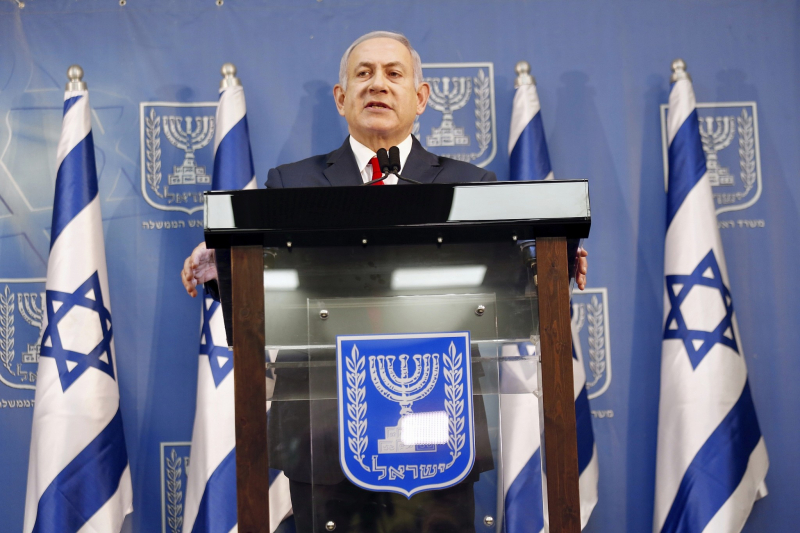
timesofisrael.com 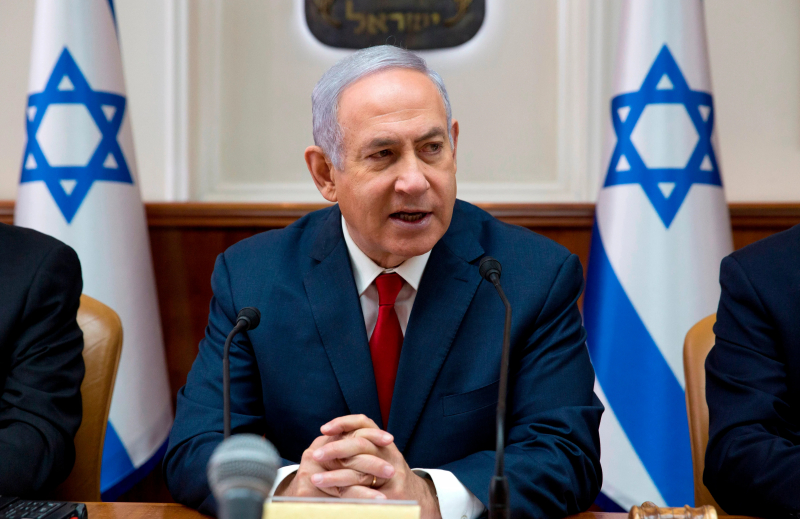
time.com -
Conflict between Israel and Palestine has been at the top of the Israeli leader's agenda ever since he was elected prime minister in February 2009. His administration put up demands for a Palestinian state that were categorically denied. Less than a year later, the negotiations broke down once more, and they have been stuck for about ten years.
Along with opposing Iran's nuclear weapons development, his administration has pushed for similar action from world leaders. Due to economic disparity and a lack of money for housing, transportation, public services, and education, he must fight for the safety of his people while also having to deal with unrest at home.
He commanded a significant military operation in Gaza in 2014 in retribution for Palestinian supporters' shootings toward Israel. The incident caused severe fatalities and a breach in Israel's relations with other countries. The leader's future has frequently been in jeopardy as a result of the conflicting opinions that persist.
Because of more Netanyahu controversies in 2018, Israel called an early election for April 2019. Despite winning the election, the charismatic leader was unable to unite other parties into a coalition because of a lack of support. When Bibi Netanyahu was charged with corruption, fraud, and breach of trust in November 2019, this became pointless.
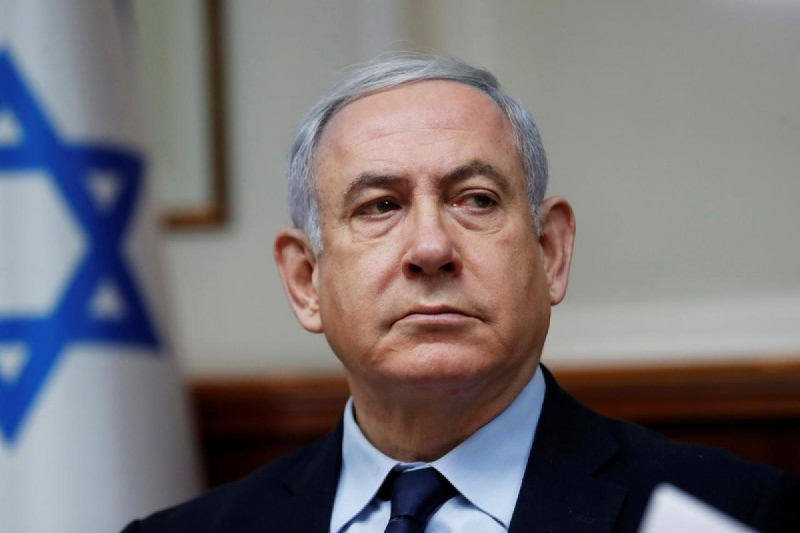
vov.vn 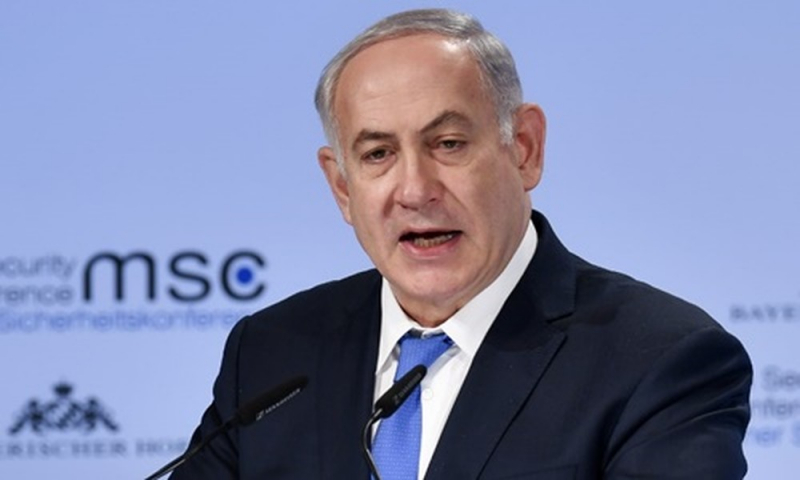
baonghean.vn









